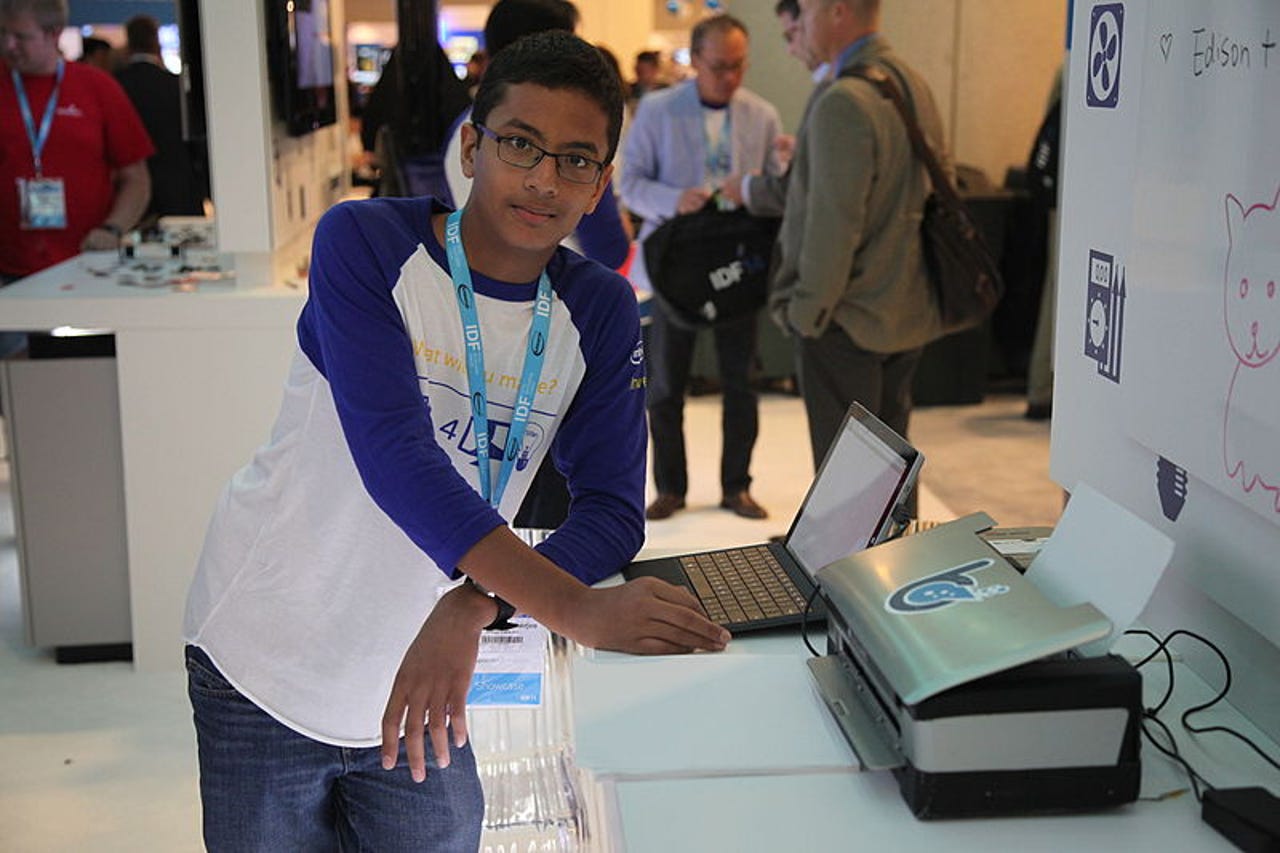Braille printer leads $62m Intel injection for 16 startups

Intel has made good on its commitment at IDF to invest in Braigo Labs in order to bring its Braille printer to market, with the company included in a round of funding by Intel Capital that will see $62 million split among 16 startups.

Braigo Labs was founded by then 12-year-old Shubham Banerjee, who created a Braille printer built with a Lego Mindstorms EV3 set, the design of which is now available for download. Braigo is now developing a new version of the printer that it intends to take to market.
Joining Braigo in this funding round of companies is Incoming Media, a mobile video that preloads video content based on a user's viewing preferences. Incoming was spun out of National ICT Australia (NICTA) in May last year, after an AU$1.1 million seed funding round. At the time of its foundation, Incoming claimed 600,000 users, and Intel joins stakeholders such as OneVentures, NICTA, and Citrix Startup Accelerator.
"We are focused on helping innovative companies develop across this technology ecosystem, and we expect to invest a total of $355 million this year," said Arvind Sodhani, president of Intel Capital.
The 16 startups funded were Avegant, Braigo Labs, Eyefluence, AnDAPT, Audyssey, Incoming Media, INRIX, Screenovate Technologies (Israel), Thundersoft (China and Taiwan), NetSpeed Systems, Reno Sub-systems (Canada), Gigya, PilotTV (Taiwan), PrecisionHawk, Prelert, and Stratoscale (Israel) — the vast majority of which are US-based, with only the five noted being based elsewhere.
However, Sudheer Kuppam, Intel Capital managing director for Asia-Pacific, told ZDNet that the decision on which companies to fund came down to what Intel's business units liked, and did not reflect any geographical bias.
"In general, most of the companies, they are indeed international, because even if you say the headquarters is in the US, they might have a development arm in China, or R&D in India or Israel," he said. "So if an Australian company does well ... we will go there.
"We typically look all over the world for product innovation."
Last month, Intel made a $28 million initial round of investments from a stash of $100 million it has earmarked for Chinese companies.
Disclosure: Chris Duckett travelled to Intel Capital Global Summit as a guest of Intel.